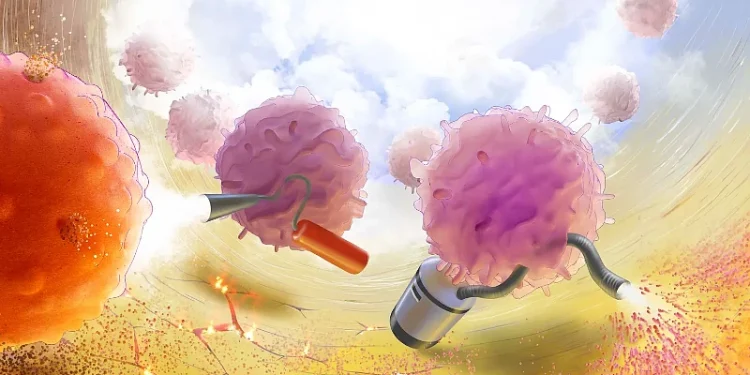Could Engineered Immune Cells Transform Autoimmune Disease and Transplant Treatments?
Imagine a future where autoimmune diseases are managed without compromising your immune system, and organ transplants succeed without lifelong medications. Groundbreaking research on engineered immune cells is making this vision a reality.
A Game-Changing Approach to Immune Health
Researchers from the University of California, San Francisco (UCSF), supported by the NIH, are developing therapies that use engineered immune cells to treat autoimmune diseases and protect organ transplants. These therapies aim to reduce infection risks by targeting the immune system with precision, offering a safer and more effective alternative to current treatments.
In the U.S., millions suffer from autoimmune diseases like type 1 diabetes and inflammatory bowel disease, where the immune system attacks healthy tissues. Similarly, organ transplant recipients rely on lifelong immunosuppressive drugs, leaving them vulnerable to infections and cancer. Engineered immune cells have the potential to change these outcomes dramatically.
What Makes Engineered Immune Cells Unique?
Traditional immunosuppressive therapies suppress the entire immune system, leaving patients at greater risk for severe infections and other complications. Engineered immune cells, by contrast, offer a novel solution:
- Precision Targeting: These cells act only in specific tissues or organs where immune suppression is needed, avoiding systemic side effects.
- Tailored Functionality: Therapies can be customized to address individual patient needs, offering a more personalized approach.
For instance, researchers modified CD4+ T cells to produce anti-inflammatory signals when they detect inflammation or transplanted tissues. Equipped with molecular sensors, these cells activate only when needed, ensuring precise immune regulation.
Recent Advances in Immune Cell Engineering
NIH-Supported Research on Targeted Immunosuppression
In a study published in Science, engineered suppressor T cells demonstrated the ability to protect transplanted pancreatic islet cells in mouse models of type 1 diabetes. These cells released “immune brakes” at the site of inflammation, shielding transplanted tissues from immune attacks without affecting the entire immune system.
Clinical Trials in China
Early human trials have reported significant success. Patients with severe autoimmune diseases, including systemic sclerosis, experienced marked improvement within days of treatment. One patient noted improved mobility and skin elasticity just three days after receiving engineered immune cells.
Applications: Transforming Lives
Engineered immune cells could revolutionize care for various conditions:
- Autoimmune Disease Patients: Treatments could suppress harmful immune activity only where needed, minimizing side effects and improving outcomes for diseases like type 1 diabetes and lupus.
- Organ Transplant Recipients: The ability to protect transplanted tissues without systemic immunosuppression could eliminate lifelong medications and improve success rates.
- Cancer Treatment: By refining CAR T-cell therapies, engineered immune cells could make treatments safer and more precise, reducing toxicity while expanding the therapy’s use to more cancers.
Future Challenges and Prospects
Despite its promise, several challenges must be addressed. Long-term safety is a critical concern, as researchers need to ensure that engineered cells don’t trigger unintended immune responses.
Additionally, scaling these treatments to make them accessible and affordable will require significant advances in technology and manufacturing. Regulatory hurdles, including securing FDA approval, will also play a key role in determining how quickly these therapies reach patients.
Moving Towards Precision Medicine
The advent of engineered immune cells signals a new era in personalized, targeted healthcare. These therapies have the potential to transform treatment approaches for millions of people.
Autoimmune disease patients could benefit from safer, more effective treatments, organ transplant recipients may enjoy longer-lasting, complication-free outcomes, and cancer patients could see improved survival rates with fewer side effects.
While widespread implementation may take years, the research is a powerful step forward. These innovations hold the promise of a future where immune-related conditions are treated with unparalleled precision and effectiveness.
Stay informed about advancements in engineered immune cell technology and their potential to reshape the future of medicine.
Sources: THX News, Frontiers, Nature, UCSF & National Institutes of Health.









